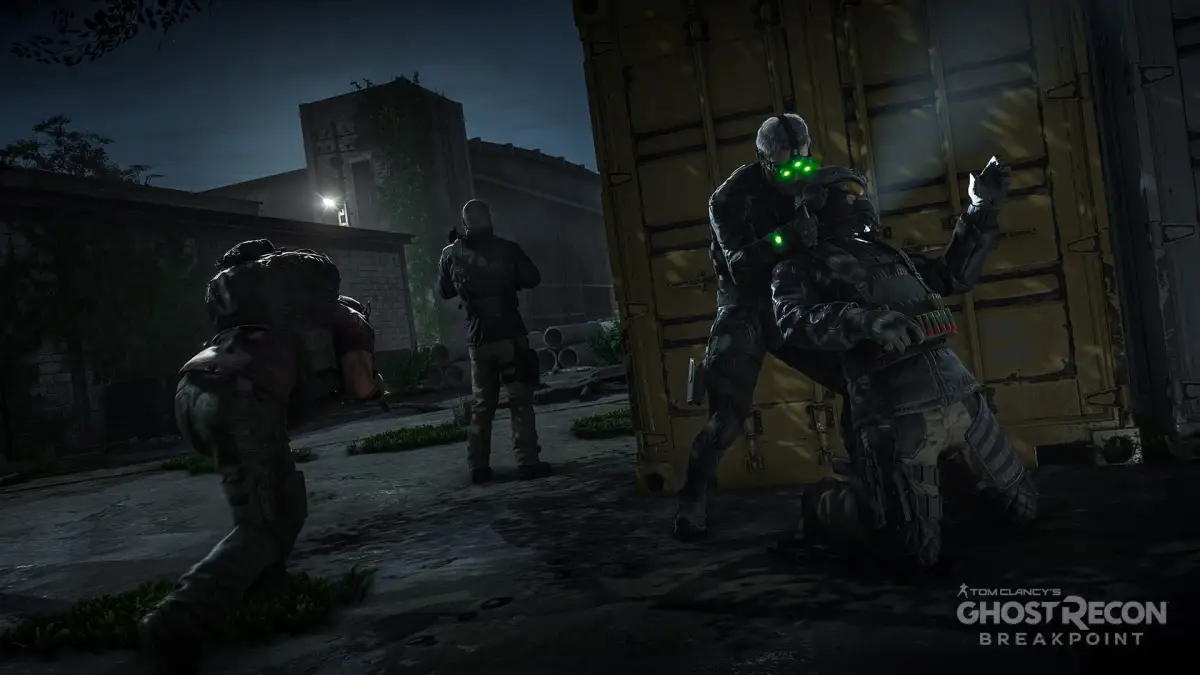Ghost Recon: Breakpoint was a historic game for Ubisoft, but for all the wrong reasons. Its lukewarm sales were only matched by its middling critical consensus, inflicting a palpable and unexpected blow to the publisher. However, Ubisoft committed to working on the title as though it were the bigger hit the company hoped it would be. That commitment has resulted in this week’s major free update to the game, The Ghost Experience, alongside new paid content for Year 1 Pass holders in the Splinter Cell crossover Deep State mini-campaign. Is it enough to bring these Ghosts back to life? Not for most people probably, but the players that have loved Ghost Recon for years will find the game now looks more like its best self.
The highlight of the update is the new Immersive Experience, which removes gear level and tiered loot altogether while offering new tactical options. It smartly prompts you to consider that change right when you boot it up, which really drives home just how unpopular the gear scores and tiered loot were for fans expecting something other than “Diet Division.”
Immersive opens up the game’s already highly customizable difficulty options to an extreme degree. The HUD is pretty crowded, but you can pick it apart one detail at a time if you like less on-screen information. Bandages can be left infinite in your inventory or reduced to numbers as low as five. You can make injuries more common, leave shopping only to the social hub rather than any fast travel point, and have stamina and health deplete much faster than before. You can even force yourself to retrain your video game brain by allowing unused ammo in a reloaded clip to go wasted — no more reloading after every shot to get back to a full magazine.
These new options feel like the best way to play Ghost Recon. But The Ghost Experience can’t undo all of the game’s issues. Most glaring is its ever present repetition. Open-world games, specifically Ubisoft’s, have long been criticized for their formulaic sandboxes, with low mission variety giving players a lot to do, but not a lot of different things to do. That’s never felt truer than in Breakpoint, coming as a sequel to Wildlands, which itself overstayed its welcome with some recycled mission ideas in its 60-hour campaign. Nothing in the new update really attends to the poor mission variety, and that’s still going to be a formidable filter for many would-be diehards who grow restless waiting for new sights to see after a dozen hours of infiltrating the same displaced Silicon Valley-like mansions and offices.
Even the paid campaign that comes along with the update doesn’t bring many new ideas to mission format, save for one final boss that goes so far in the opposite direction that it’s actually the worst part of it all. Impassioned Ghost Recon fans don’t want staged boss battles with Bond-like big bads. They want the one-shot, one-kill, deliberate and stealthy co-op takedowns. That’s when Ghost Recon has always been at its best, and there have always been flashes of that in the faulty Breakpoint, even at launch.
Certainly there is more now for Immersive mode players too, but it’s going to remain tough to reel in a few friends to really commit to the game in the way required to get the most out of it like this. Ghost Recon requires a commitment that borders on method-acting to fully see its potential, which is a tough sell with all the repetition that remains in the game.
Having said that, if you’re a Year 1 Pass holder, the new eight-mission campaign, Deep State, is worth it for the Splinter Cell content alone, and Michael Ironside reprises his famous role. The game rewards you quite handsomely with crossover items, including Fourth Echelon clothing and gear and even a complete head-to-toe Sam Fisher skin, though Ironside’s voice work isn’t included in that case. For the most tactical players, Breakpoint was already a squinty Splinter Cell, and now that you can literally run around Auroa as Fisher himself, it does scratch an itch Ubisoft hasn’t tended to in seven years.
When Ubisoft CEO Yves Guillemot spoke of a lack of differentiation factors being a reason for Ghost Recon’s initial failure, he was both spot-on and refreshingly honest. It’s great to see Ubisoft is pushing itself to do better with its next round of major releases, and it feels like Breakpoint could be the last of the old guard for the publisher as we all forge ahead toward new hardware with new opportunities to innovate. Breakpoint may be the monument to rushed live-service sequels that helped at least one publisher see that, in an increasingly crowded market, it’s no longer enough to merely give players more to do. It has to be meaningful.
Collectively, the new update brings a mixed bag to a game that was already the epitome of mile-wide, inch-deep design. New Immersive mode features make Ghost Recon: Breakpoint clearly better today than it was last fall, and if you haven’t played Wildlands, you could definitely get a lot more out of the series by starting here and enabling at least some, if not all, of the Immersive mode features. But if you had your fill in the preceding months, neither The Ghost Experience nor the Deep State campaign do much to merit an excited return to the dystopian archipelago. Still, it’s worth something just to hear the gravelly voice of Fisher and delight over his tri-lit goggles, wishing for a Ubisoft sequel of a different nature.






Published: Mar 25, 2020 01:14 pm